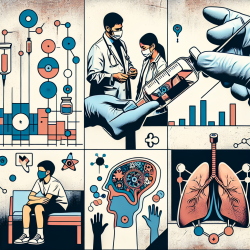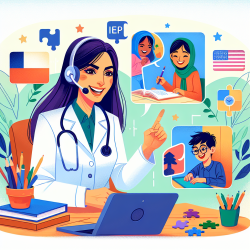Understanding the Association Between Thimerosal-Containing Vaccines and Special Education Services
In recent years, the conversation around vaccines and their potential impacts on child development has gained significant attention. A recent study titled "A Cross-Sectional Study of the Association between Infant Hepatitis B Vaccine Exposure in Boys and the Risk of Adverse Effects as Measured by Receipt of Special Education Services" offers valuable insights for practitioners in the field of speech language pathology and education.
Key Findings from the Study
The study explored the potential relationship between infant exposure to mercury from Thimerosal-containing hepatitis B vaccines and the increased risk of boys requiring special education services. The research analyzed data from 1192 boys aged 7-8 years, born between 1994 and 2007, using the National Health and Nutritional Examination Survey (NHANES).
Key findings from the study include:
- Boys who received three doses of Thimerosal-containing hepatitis B vaccine were at a significantly higher risk of requiring special education services compared to those who did not receive the vaccine.
- The association was robust even after adjusting for covariates such as race and socioeconomic status.
- Exposure to Thimerosal-reduced hepatitis B vaccine was not associated with an increased risk of receiving special education services.
Implications for Practitioners
For practitioners working with children, these findings underscore the importance of understanding potential environmental factors that could influence developmental outcomes. Here are some ways practitioners can apply these insights:
- Data-Driven Decisions: Use data from studies like this to inform assessment and intervention strategies. Understanding potential risk factors can help tailor approaches to meet individual needs.
- Advocacy for Safe Vaccination Practices: While vaccines are crucial for preventing infectious diseases, advocating for safer formulations without Thimerosal can contribute to better developmental outcomes.
- Further Research: Encourage ongoing research to explore the long-term impacts of vaccine components on child development. Collaboration with researchers can provide valuable insights and improve practice.
Conclusion
The study highlights the need for careful consideration of vaccine components and their potential impacts on child development. Practitioners in speech language pathology and education can play a vital role in advocating for safer practices and supporting children who may be at risk of developmental challenges.
To read the original research paper, please follow this link: A Cross-Sectional Study of the Association between Infant Hepatitis B Vaccine Exposure in Boys and the Risk of Adverse Effects as Measured by Receipt of Special Education Services.










